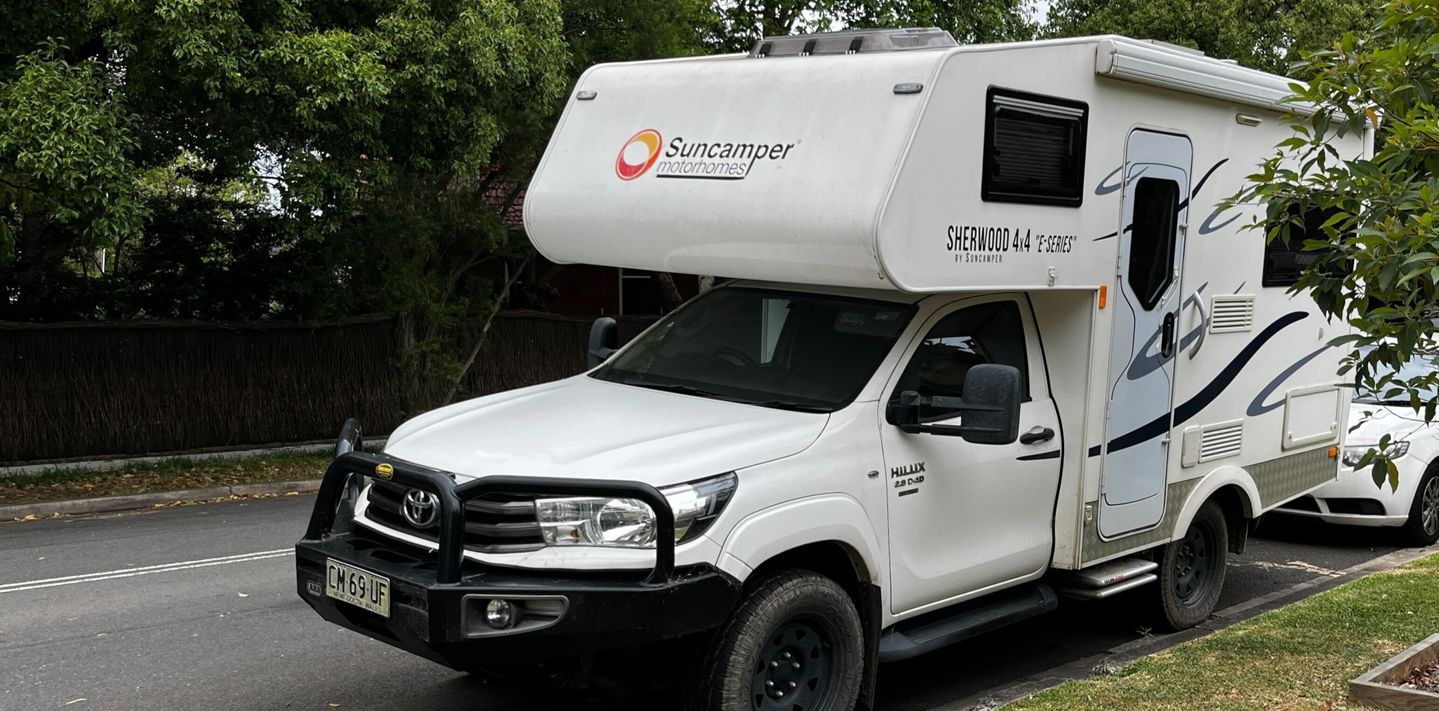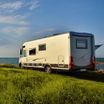
Parking rules for campervan rentals
By Vroom Team • Reviewed 19 Jan 2026
Not sure where to park your campervan or rest for the night? Are you allowed to sleep in your campervan? Every destination in Australia has their own set of rules on parking, both for regular cars and larger vehicles, like campervans. Read on to learn more.
If you’re planning to rent a campervan or motorhome in Australia, you should first look for campervan parks and campsites that allow campervans to park legally. Also familiarise yourself with the general parking rules and learn to read parking signs, as illegal parking in Australia can result in hefty fines and even vehicle confiscation. Parking and camping regulations may vary between cities and states, so it’s important to plan your stops and understand local council laws before pulling over to park. It’s a good idea to consult with your campervan rental provider to learn the local rules around campervan parking.
Where can I park my campervan in Australia?
Your best options for parking a rental campervan or motorhome are official campervan parks, caravan sites, or designated camping grounds where overnight stays are permitted. Aside from allowing overnight stays, these locations are designated stops for disposing trash, recharging vehicle batteries, and other facilities to support campers during their trip and maintain their campervans’ overall performance.
Strict parking rules are implemented across in Australia, and campervans and motorhomes are not exempt from these policies. If there are no camping sites along your route, you can check whether your rental vehicle is allowed to park at hostels or other backpacker accommodation. Your campervan rental provider may also assist you in locating legal parking spaces along your route.
Am I allowed to park my campervan on the road?
Yes, you’re allowed to park on the roadside, but you may not be legally allowed to sleep in a campervan, motorhome, or any vehicle parked on the side of the road. Even in residential areas, there are strict rules regarding parking, especially when it can potentially obstruct traffic and road accessibility features, including footpaths, cycling paths, and kerb ramps.
If you fail to comply with parking and traffic regulations, you can be charged a hefty fine and your vehicle may be towed. An exception to these parking rules is when the driver needs to stop and recover from fatigue for safety reasons.
How long are campervans allowed to park in parking areas?
Each location has its own parking rules, with parking signs specifying where, when and for how long you can stay in a parking space — even stating what type of vehicles are allowed to park in certain areas. While parking signs may indicate the time of day vehicles are allowed to park, these rules may not apply to recreational vehicles, including campervans. Always check signage carefully; some areas have time limits as short as two hours, and overstaying can result in fines. You should confirm parking rules for rental vehicles with your campervan provider to avoid penalty charges.
Can I stay at a parking area overnight?
You can only stay overnight in designated campervan parks or camping grounds that allow overnight stays. Parking rules differ per locality, and it is best to ask your campervan rental provider about the legalities around campervan parking — including overnight parking — in their locale. In most cities, sleeping in your vehicle parked on the side of the road or in carparks is prohibited unless for fatigue management or emergency reasons.
For more campervan and motorhome travel advice, see our campervan hire guide and rental information pages.
Important InformationCan you park your campervan anywhere?
You can only park your campervan in legal parking areas, but to stay on the safe side and avoid legal fines — or towing — park your campervans in designated campervan parks, caravan sites, and camping grounds. When there are no campervan parks near you, it’s best to review parking rules implemented by the local council or inquire about parking policies with your campervan rental provider.
About the author

Vroom Team
VroomVroomVroom’s writing team brings together decades of writing expertise to share their insights into travelling around Australia by rental car. Let our team help you get the most out of your rental car experience.







